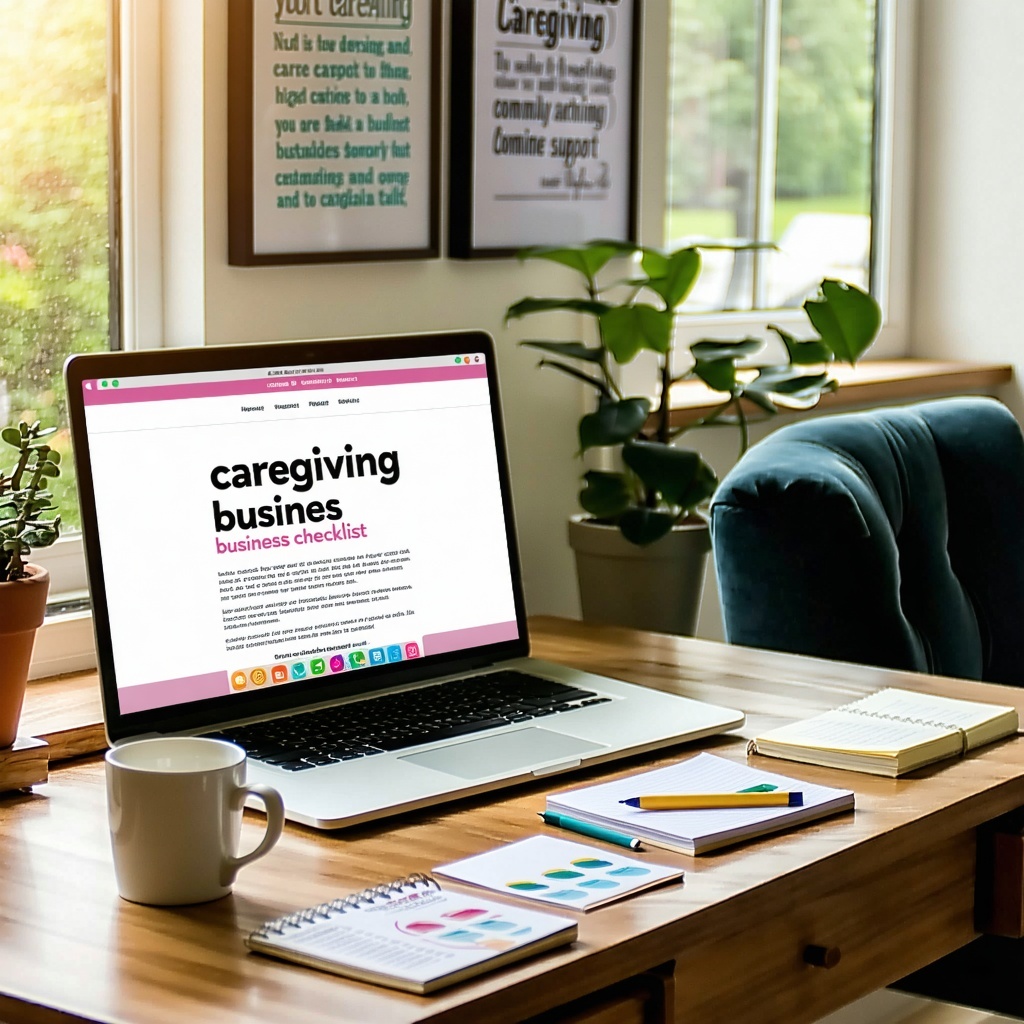Checklist: Starting your own caregiving business in New Zealand
Use this step-by-step guide to help you set up and grow your self-employed caregiving career.
4 min read
 The Mycare Team
:
11 June 2025
The Mycare Team
:
11 June 2025

Thinking about turning your caring nature into a rewarding career? You’re not alone — more and more Kiwis are stepping into care work to earn income, make a difference, and enjoy the freedom of working for themselves.
Becoming a self-employed care worker in New Zealand might sound daunting at first — tax, invoicing, clients — but the truth is, it’s simpler than you might think. With the right support and a bit of guidance, you can build a flexible, fulfilling caregiving business that works around your life.
This guide walks you through everything you need to get started, from setting up your business to finding your first clients and managing your money along the way.
When you work independently — also called being an independent contractor — you’re in charge of your own schedule, your own clients, and your own business. That comes with some responsibility, but also a lot of freedom.
Here’s what self-employment offers:
To work independently in New Zealand, you’ll need to set yourself up as a sole trader. That’s the simplest type of business structure.
You’ll need an IRD number and must register as a sole trader. This lets you invoice clients and get paid legally.
👉 IRD: Becoming a sole trader [https://www.ird.govt.nz/about-us/videos/campaigns/business-basics/sole-trader-structure]
👉 MBIE: Becoming a sole trader [https://www.business.govt.nz/getting-started/sole-trader-guide/becoming-a-sole-trader]
As a sole trader, you’ll need to:
You can claim some business-related expenses (like travel or phone costs), but it’s smart to speak to an accountant for help.
👉 Business.govt.nz: Tax when you’re self-employed
You must register for GST if you earn over $60,000/year from your caregiving work.
👉 IRD: GST – Do you need to register?
Self-employed people are covered by ACC, but you’ll receive a yearly ACC levy based on your income.
Just a reminder: this article is not legal or financial advice. If unsure, it’s best to speak to a tax agent or accountant.
There are lots of ways to find caregiving work — it just takes a little effort and a bit of networking.
Mycare is a New Zealand platform that helps caregivers like you:
It’s one of several tools available — but a great option if you want to stay in control while reaching a wider audience.
As a self-employed caregiver, you choose what you charge. This might feel awkward at first, but it’s part of running your own business — and you deserve to be paid fairly.
Things to consider:
Be upfront about your hourly rate, travel charges (if any), and when you're available. It helps avoid misunderstandings and sets a clear tone from the start.
You don’t need to be formal or corporate — but professionalism matters. It helps build trust and keeps your business running smoothly.
Here are a few tips:
If you’re using Mycare, their system takes care of things like hours, invoices, and reminders, so you can focus on the care part.
Being self-employed means you’re in charge of your finances — and that includes planning ahead.
Here are some tips that caregivers have found helpful:
The more confident you are with your numbers, the more control you’ll have over your work and your future.
Care work is a career that grows with you. You don’t need formal qualifications to get started, but building your skills can open up more opportunities.
Here are some ideas:
And remember, you can always reach out to Mycare’s support team or browse their caregiver tips online.
Starting your own caregiving business might feel like a big step, but it’s also an exciting one. You get to choose the kind of work you do, build genuine relationships with people, and make a real difference — all on your own terms.
Ready to get started? We’re here to support you every step of the way — from creating your profile to growing your confidence as a self-employed caregiver.

Use this step-by-step guide to help you set up and grow your self-employed caregiving career.

Use this checklist to guide your search for the right home support for your loved one or yourself.

More and more Kiwis are choosing in-home elder care — and it’s not hard to see why. Staying at home offers comfort, independence, and a sense of...